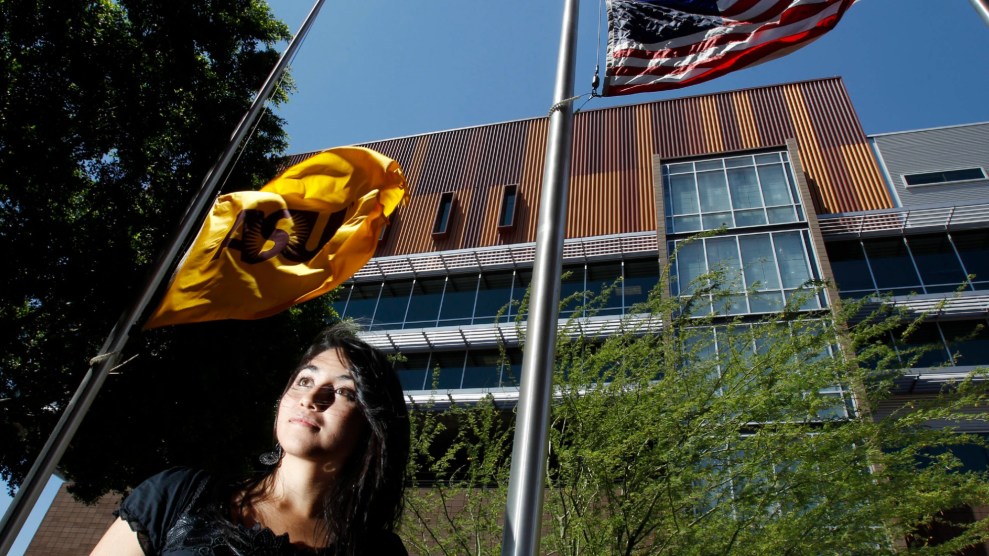
St. Petersburg’s Shore Acres neighborhood on September 27, in the aftermath of Hurricane Helene.Mike Carlson/AP
On Wednesday, Homeland Security Secretary Alejandro Mayorkas said the Federal Emergency Management Agency (FEMA) agency didn’t have enough funding for the rest of hurricane season. Some on the right, including Trump, seized on the moment to attack their favorite scapegoat: undocumented immigrants.
“They stole the FEMA money just like they stole it from a bank so they could give it to their illegal immigrants who they want to have vote for them,” Trump falsely claimed during a rally in Michigan yesterday.
FEMA’s response: a fact check page, where the agency denied diverting funds.
Here’s how FEMA funding actually works: Congress allocates disaster relief funds, which FEMA can use for things like direct financial assistance for those in affected areas, delivering essential items like food and water, and funding rebuilding projects from local governments. On the other hand, FEMA’s migrant support efforts go through the Shelter and Services Program, which Congress has to fund separately and which has recently represented less than three percent of their total annual budget.
But FEMA does have a funding problem: it’s struggling to keep up with increasingly deadly natural disasters caused by climate change.
This year, FEMA began operating on what’s known as an “immediate needs funding” basis because of low funds, which meant the agency paused recovery funding for previous disasters and prioritized immediate responses to current disasters. By September 13, the United States had already experienced 64 major disasters that had killed 149 people and cost an estimated $53 billion. Shana Udvardy, a senior climate resilience policy analyst from the Union of Concerned Scientists, wrote in a statement that Congress needed to act quickly to supplement FEMA’s disaster relief fund.
Then Hurricane Helene hit. So far, the storm has killed more than 200 people, and over 600 are unaccounted for. Congress did allocate $20 billion as part of the stopgap measure in late September—which allowed FEMA to lift the “immediate needs funding” status—but property damage alone from Helena is estimated to be anywhere between $15 billion and $26 billion, and with only 6 percent of U.S. homeowners having flood insurance, FEMA would have to fund many of these repairs. This 20 billion would also need to be split between the current crisis and efforts to assist with previous natural disasters.
Climate change has led to bigger, more dangerous natural disasters. Helene may have been up to 20 percent wetter over the Southeast and 7 percent windier in Florida’s Gulf due to climate change, according to one group of scientists.
Politicians across the political spectrum have called on Congress to reconvene to address the funding issues. A bipartisan group of twelve senators from the states hit hardest by Helene signed a letter calling on Congress to reconvene before the election to “address the scope and scale of destruction experienced by our constituents.” But Speaker Mike Johnson has resisted these calls, telling the New York Times that “there’s no necessity for Congress to come back.”
While the nation’s most powerful decision-makers decide whether or not to act, undocumented migrants will likely make up a large percentage of those working on hurricane recovery efforts. After Hurricane Harvey caused catastrophic flooding across Louisiana and Texas in 2017, killing more than 100 people, immigrants made up the bulk of recovery-related workers—estimates suggest over 70 percent of these workers were undocumented. Undocumented workers have also played a major role in recovery efforts after Hurricane Michael tore through Florida and Hurricane Katrina decimated New Orleans.

















